What Roadblocks and Challenges do Our Students Face?
What Changes Can We Consider to Improve Student Success?
The Student Academic Pathways Project (SAPP), sponsored by the Division of Undergraduate Education and Academic Planning (DUEAP), organized nine faculty members from different colleges to analyze student transcripts as a means of exploring the ways SF State students progress (or don't) through their degrees. Participating faculty members presented their findings at a poster session in the Cesar Chavez Student Center on Thursday, September 28, 2017. The findings, outlined in more detail below, discussed the effect of probation status on graduation, the positive effect of taking Ethnic Studies courses on graduation rates, the effect of changing majors and more.
Download all of the SAPP poster files in one PDF.
The Impact of the Golden Four on Graduation
Failing a "Golden Four" (quantitative reasoning, critical thinking, written communication, and oral communication) course correlates with a decreased likelihood of graduating.
Download the full "Impact of the Golden Four on Graduation" poster.
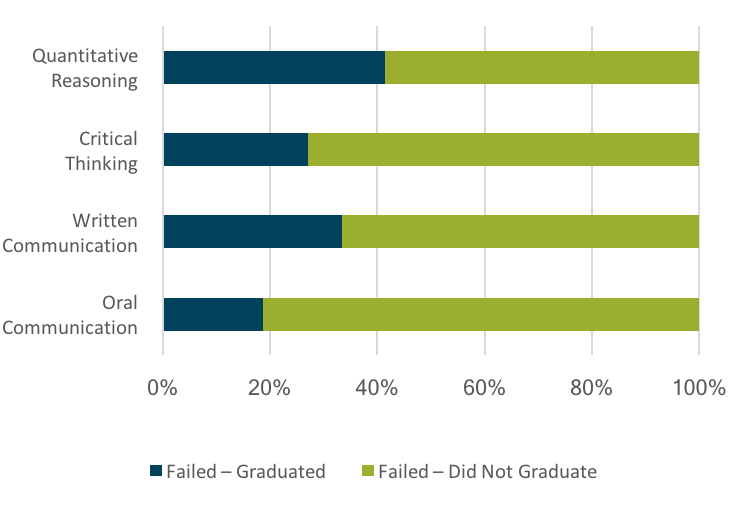
Ethnic Studies Course Completion and Graduation Rates
For non-Ethnic Studies majors, completing an Ethnic Studies course significantly increased their likelihood of graduating.
Download the full "Ethnic Studies has a Positive Impact on Graduation Rates" poster.
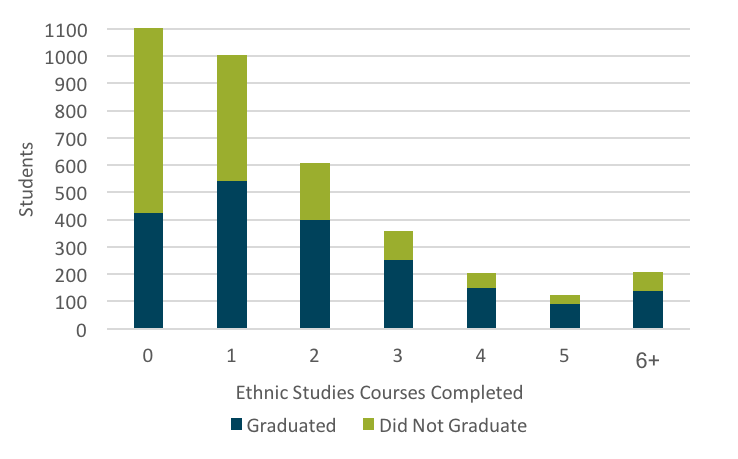
No Credit (NC) Grades Have a Negative Impact on Graduation Rates
Students who earn two or more NC grades are much less likely to graduate within six years compared to those earning one or no NC grades.
Download the full "How do NC Grades Impact Graduation Rates?" poster.
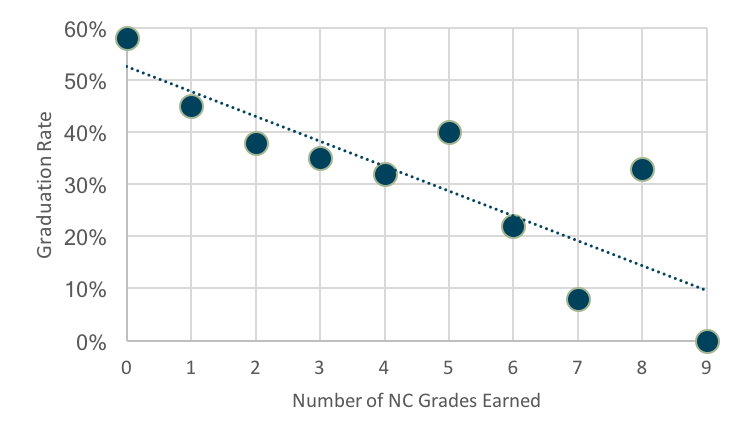
Stepping Up to the Major
Students who complete a lower division course in their major are more likely to persist and graduate.
Download the full "Stepping Up to the Major" poster.
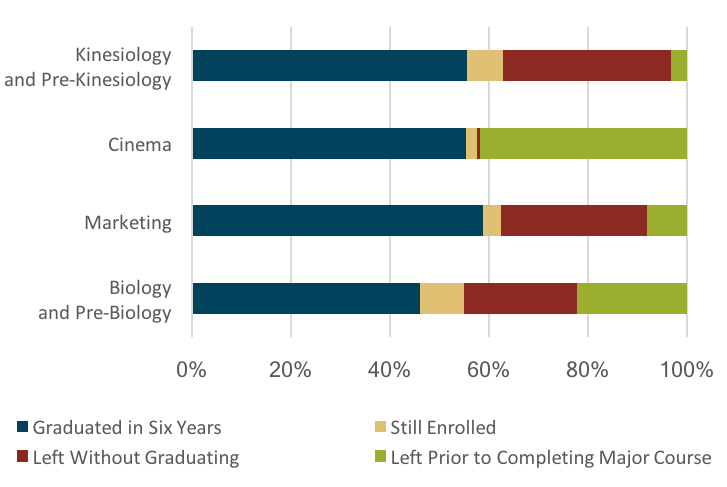
Academic Probation and Graduation Rates
Students who experience one or more semesters on probation are less likely to graduate.
Download the full "Probation and Graduation Rates Among Undergraduates at SF State" poster.
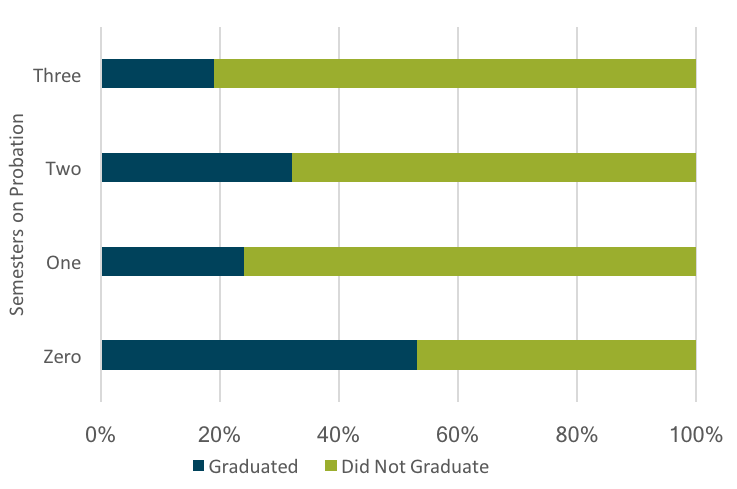
The Impact of Remedial Courses on Graduation Rates
Students who need additional support in english and math (i.e., double remediated) are less likely to graduate.

Students Entering with a Declared Major Who Change Majors are More Likely to Graduate
Students who change their major at least once are more likely to graduate.
Download the full "Student Major Change" poster.
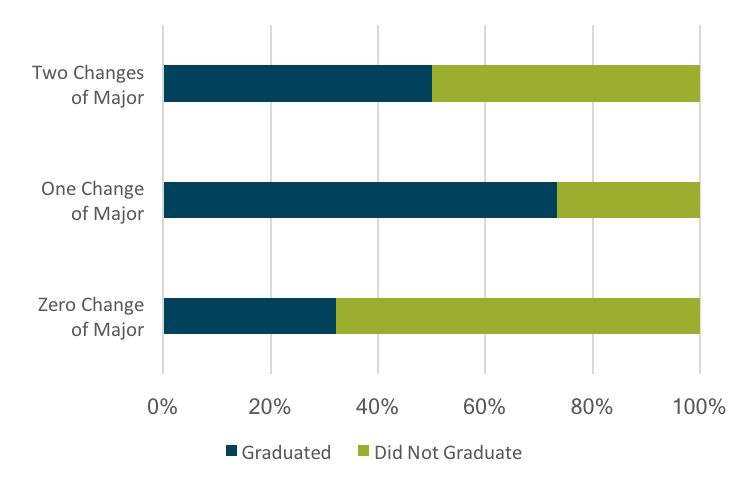
Participants:
- Kimberley Altura
- Chris Bettinger
- Alison Cerezo
- Juanita Darling
- Jane Dewitt
- Nancy C Gerber
- Eric Hsu
- Jenny Lederer
- Theresa Roeder
- Robert Saltzman
- Sophia Simon-Ortiz
- Sutee Sujitparapitaya
- Jennifer Summit
- Lori Beth Way